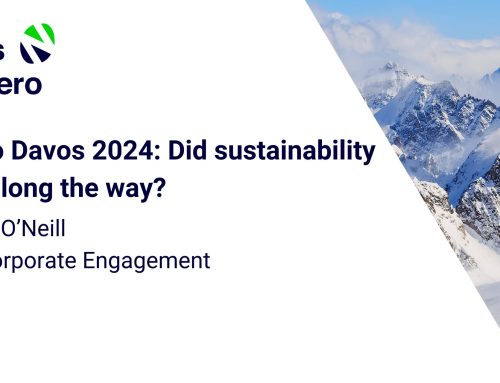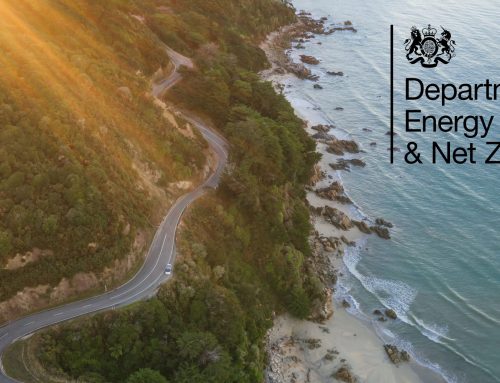
Welcome to the first of Bankers for Net Zero (B4NZ)’s introductory Q&A blogs to get to know our team!
What is your name and what is your role?
My name is Elena Pérez Celis and I am the new Head of Policy and Public Affairs at Bankers for NetZero. I will be leading B4NZ’s approach to policy and regulation, as well as the delivery of our public affairs strategies.
Where are you from?
I am from a small city in the north of Spain, Palencia.
What were you doing before you joined B4NZ?
Before joining Bankers for NetZero, I worked as a consultant in a public affairs firm where I provided tailored advice to clients on policy and regulatory issues that could impact their businesses across different sectors including finance, technology, and transport. Prior to that, I was a Researcher at the Public Policy Exchange where I organized weekly policy events and analysed policy issues across different sectors. Before that, I worked at the Spanish Ministry of Foreign Affairs where I supported the activity of several United Nations Agencies, Funds, and Programmes. I also hold an MA in Public Policy from King’s College London and a BA in International Relations.
What were your key takeaways from the ‘Green Day’ policies announced last week?
The UK Government’s proposals provide much-needed clarity on the future direction of travel of the UK’s sustainable finance regulatory framework. It is very welcome to see the Government’s recommitment to the delayed UK Green Taxonomy, as well as its intention to establish two advisory committees on integrated sustainability reporting in line with the International Sustainability Standards Board’s (ISSB) frameworks. Recognising that Scope 3 emissions can account for between 80-95% of an organisation’s total footprint, the Government has committed to revising its Environmental Reporting Guidelines, which is a voluntary framework for companies, to provide more guidance on how to collect and report data on Scope 3 emissions. The Government has also committed to developing a framework for embodied emissions reporting, which may include emissions related to raw material extraction and processing, fuel combustion, process emissions, and end-of-life emissions. In addition, to position the UK as a global hub for voluntary carbon trading, the Government has pledged to improve the integrity of voluntary carbon markets (VCMs) to promote their growth while preventing greenwashing and will establish nature market standards for investment in carbon and other ecosystem services. The Government is also considering implementing a Carbon Border Adjustment Mechanism (CBAM) to combat carbon leakage, which will be an import tax on products in sectors subject to the UK ETS. Focus now turns to deliver these promises, and I am hoping to see more policy clarity in the upcoming consultations.
Where there any areas Government policy could go further on?
The introduction of the new insulation scheme is a positive development, and the proposals show that the Government is backing clean, electric heat as the way forward. However, the Conservative party has yet to allocate £2.1bn, or one-third of the funding for energy efficiency and clean heat as promised in their manifesto. Although the new scheme will help to insulate an additional 100,000 homes annually, the number is still insufficient given that there are 17 million homes in the UK lacking proper insulation. More funding is needed for retrofitting to achieve the goal of net zero.
What developments in green finance are you most excited about?
The Government has made clear that the net zero transition provides the opportunity for economic growth, creating new sectors, technologies and jobs. It is very welcome to see the Government’s focus on supporting SMEs to set meaningful net zero targets and reduce their GHG emissions. Recognising that simplifying the data collection process is key to achieving this is a step in the right direction. The Government is then working with Bankers for NetZero to automate SME sustainability reporting on a national scale by creating a common data sharing platform for net zero data sharing. A standardised approach to measurement and reporting of progress of SMEs is essential and I look forward to the Bankers for NetZero team featuring the pilot programme of this at COP28.



